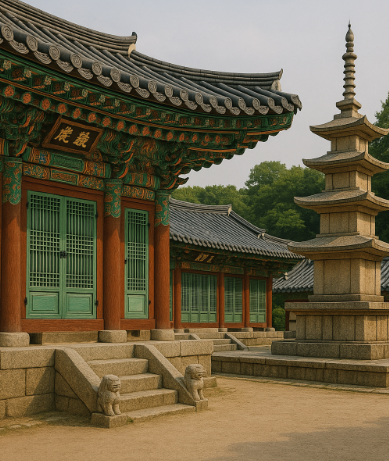Introduction to Korean Literature
Korean literature is a rich and diverse field, deeply intertwined with the cultural and historical fabric of Korea. It encompasses works written in Korean or by Korean authors, and it spans a wide range of genres and themes. This article will explore some key aspects of Korean literature, from its ancient origins to its modern evolutions.
Historical Development of Korean Literature
Korean literature can be traced back over a millennium, with its roots in oral traditions and classical works composed in Classical Chinese. Ancient texts like “Samguk Sagi” and “Samguk Yusa” provide valuable insights into Korea’s early history and legends. During the Joseon Dynasty (1392–1897), literature flourished with the creation of the Korean alphabet, Hangul, by King Sejong the Great. This allowed for the expansion of Korean prose and poetry, making literature more accessible to the wider population.
As Korea modernized, new forms of literature emerged, reflecting social changes and conflicts. In the 20th century, literature became a platform for expressing resistance during the Japanese occupation and exploring themes of division and reunion in the context of the Korean War. Today, Korean literature continues to evolve, incorporating influences from global literary trends while maintaining its unique voice.
Notable Figures in Korean Literature
Korean literature boasts many influential writers who have shaped its trajectory. Yi Kwang-su, regarded as a pioneer of modern Korean literature, introduced Western literary styles and themes. Kim Sowol’s poetry, featuring works like “Azaleas,” offers poignant reflections on Korean identity and nostalgia. In contemporary literature, authors like Han Kang, known for “The Vegetarian,” have gained international acclaim for their innovative storytelling and exploration of complex themes.
Another prominent figure is Shin Kyung-sook, whose novel “Please Look After Mom” has captivated readers worldwide with its universal themes of family and sacrifice. These authors, among others, highlight the diversity and depth of Korean literature, offering readers both locally and internationally a glimpse into the Korean experience.
Themes and Motifs in Korean Literature
Korean literature often grapples with themes of identity, historical trauma, and societal change. Traditional motifs include family relationships, nature, and the supernatural. Many works reflect on Korea’s turbulent history, addressing issues of colonization, war, and rapid modernization.
Modern authors continue to explore these themes while incorporating contemporary issues such as gender, globalization, and technology. The balance between tradition and modernity is a recurring motif, reflecting the dynamic nature of Korean society. Literature serves as a mirror, capturing the complexities and evolving narratives of Korean life.
Impact of Korean Literature Globally
Korean literature has gained increasing global recognition in recent years, thanks in part to the global Hallyu wave. The translation of Korean works into various languages has brought Korean narratives to a wider audience. Institutions and foundations are actively promoting Korean literature worldwide, fostering cross-cultural dialogues and appreciation.
As a result, readers outside Korea are more exposed to the nuances and depth of Korean storytelling. This global interest underscores the universal appeal and relevance of themes explored in Korean literature, such as resilience, love, and the quest for identity.
Table of Influential Korean Literary Works
| Author | Title | Publication Year | Theme |
|---|---|---|---|
| Yi Kwang-su | The Heartless | 1917 | Modernization |
| Kim Sowol | Azaleas | 1925 | Nostalgia |
| Han Kang | The Vegetarian | 2007 | Identity |
| Shin Kyung-sook | Please Look After Mom | 2008 | Family |
Frequently Asked Questions
What is the significance of Hangul in Korean literature?
Hangul, created during the 15th century, democratized reading and writing in Korea, allowing literature to flourish beyond the elite class.
How does Korean literature reflect historical events?
Many literary works address Korea’s history of colonization, war, and division, providing insight into the nation’s struggles and resilience.
Why is Korean literature gaining global popularity?
The universal themes, rich storytelling, and cultural context offered by Korean authors resonate with international readers, expanding its global reach.
Summary
- Korean literature spans a rich history, from ancient oral traditions to modern narratives.
- Notable figures like Yi Kwang-su and Han Kang have shaped its diversity and innovation.
- Themes often explore identity, history, and societal change.
- Global interest in Korean literature is growing, bridging cultural gaps.
#KoreanLiterature #Hangul #YiKwangsu #KimSowol #HanKang #ShinKyungsook #KoreanAuthors #LiteraryTradition #ContemporaryKoreanFiction #CulturalHeritage #IdentityInLiterature #HistoricalNarratives #FamilyAndSacrifice #GlobalRecognition #ModernizationThemes #PoetryAndProse #KoreanWar #ResistanceLiterature #ColonialHistory #LiteraryInnovation #CrossCulturalDialogues #UniversalThemes #HallyuWave #HistoricAndModern #TraditionVsModernity #CulturalNarratives #GlobalAppeal #TranslationOfWorks #KoreanStorytelling #AncientTexts #JoseonDynasty


https://shorturl.fm/p5rlY
https://shorturl.fm/k53sQ
https://shorturl.fm/OaBbe
https://shorturl.fm/lvzXe
https://shorturl.fm/UxDug
https://shorturl.fm/ND8wY
https://shorturl.fm/PrKsR
https://shorturl.fm/wHKkD
https://shorturl.fm/dumlY
https://shorturl.fm/Ddpzw
https://shorturl.fm/qXuaV
https://shorturl.fm/xX3Hv
https://shorturl.fm/wSTQC